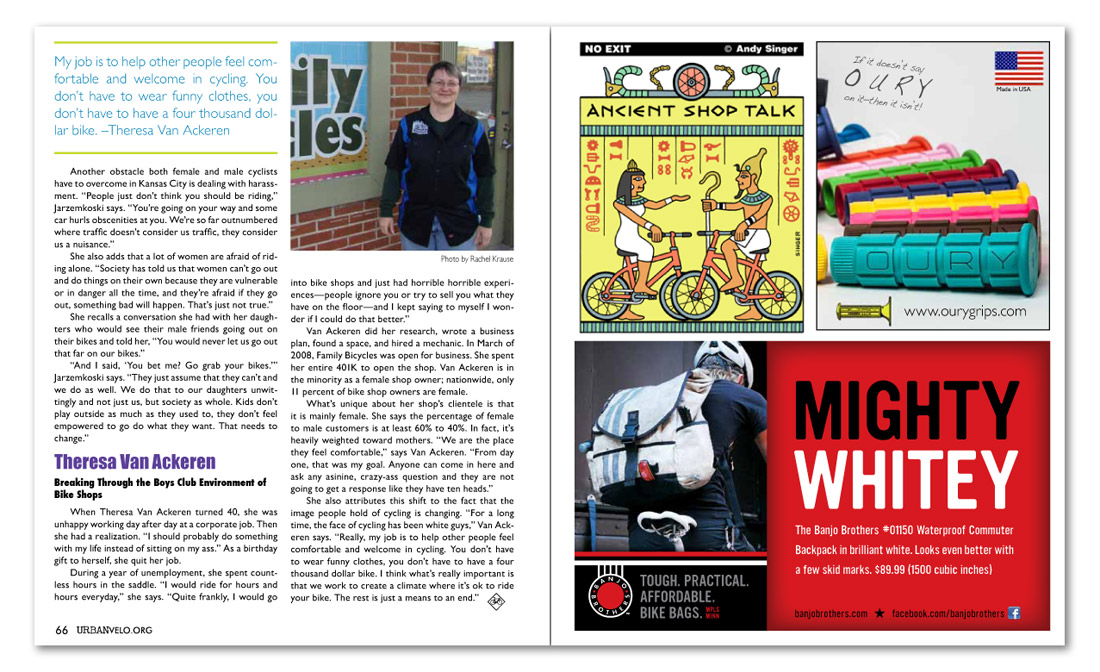


Another obstacle both female and male cyclists have to overcome in Kansas City is dealing with harassment. “People just don’t think you should be riding,” Jarzemkoski says. “You’re going on your way and some car hurls obscenities at you. We’re so far outnumbered where traffic doesn’t consider us traffic, they consider us a nuisance.”
She also adds that a lot of women are afraid of riding alone. “Society has told us that women can’t go out and do things on their own because they are vulnerable or in danger all the time, and they’re afraid if they go out, something bad will happen. That’s just not true.”
She recalls a conversation she had with her daughters who would see their male friends going out on their bikes and told her, “You would never let us go out that far on our bikes.”
“And I said, ‘You bet me? Go grab your bikes.’” Jarzemkoski says. “They just assume that they can’t and we do as well. We do that to our daughters unwittingly and not just us, but society as whole. Kids don’t play outside as much as they used to, they don’t feel empowered to go do what they want. That needs to change.”
Theresa Van Ackeren
Breaking Through the Boys Club Environment of Bike Shops
When Theresa Van Ackeren turned 40, she was unhappy working day after day at a corporate job. Then she had a realization. “I should probably do something with my life instead of sitting on my ass.” As a birthday gift to herself, she quit her job.
During a year of unemployment, she spent countless hours in the saddle. “I would ride for hours and hours everyday,” she says. “Quite frankly, I would go into bike shops and just had horrible horrible experiences—people ignore you or try to sell you what they have on the floor—and I kept saying to myself I wonder if I could do that better.”
Van Ackeren did her research, wrote a business plan, found a space, and hired a mechanic. In March of 2008, Family Bicycles was open for business. She spent her entire 401K to open the shop. Van Ackeren is in the minority as a female shop owner; nationwide, only 11 percent of bike shop owners are female.
What’s unique about her shop’s clientele is that it is mainly female. She says the percentage of female to male customers is at least 60% to 40%. In fact, it’s heavily weighted toward mothers. “We are the place they feel comfortable,” says Van Ackeren. “From day one, that was my goal. Anyone can come in here and ask any asinine, crazy-ass question and they are not going to get a response like they have ten heads.”
She also attributes this shift to the fact that the image people hold of cycling is changing. “For a long time, the face of cycling has been white guys,” Van Ackeren says. “Really, my job is to help other people feel comfortable and welcome in cycling. You don’t have to wear funny clothes, you don’t have to have a four thousand dollar bike. I think what’s really important is that we work to create a climate where it’s ok to ride your bike. The rest is just a means to an end.”